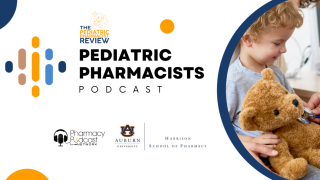Full-dose Blood Thinners Improved Hospitalized COVID-19 Patient Outcomes

In large clinical trials, a full dose anticoagulation (blood thinner) treatment given to moderately ill patients hospitalized for COVID-19 reduced the requirement of vital organ support, such as the need for mechanical ventilation.
A trend in possible reduction of mortality was also observed and is being further studied.
With large numbers of COVID-19 patients requiring hospitalization, these outcomes could also help reduce the overload on intensive care units worldwide, stated the National Heart, Lung, and Blood Institute (NHLBI) press statement issued on January 22, 2021.
Early in the pandemic, physicians worldwide observed increased rates of blood clots and inflammation among COVID-19 patients, which affected multiple organs and led to complications such as lung failure, heart attack, and stroke.
Whether providing increased doses of blood thinners routinely administered to hospitalized patients would be safe and effective was unknown at that time, said the NHLBI.
Three clinical trial platforms spanning five continents in more than 300 hospitals have been working together to test whether there is a greater benefit of full doses of heparin (blood thinners) to treat moderately ill hospitalized adults with COVID-19 compared to the lower heparin dose typically administered to prevent blood clots in hospitalized patients.
Moderately ill patients are those not in intensive care and who did not receive organ support such as mechanical ventilation at trial enrollment.
Based on the interim results of more than 1,000 moderately ill patients admitted to hospital, findings showed that full doses of blood thinners, in addition to being safe, were superior to the doses normally given to prevent blood clots in hospitalized patients, concerning the primary endpoint which is the need for ventilation or other organ supportive interventions.
The trial investigators are now working as fast as possible to make the study's full results so clinicians can make informed decisions about treating their COVID-19 patients.
As is normal for clinical trials, these trials are overseen by independent boards that routinely review the data and are composed of experts in ethics, biostatistics, clinical trials, and blood clotting disorders. Informed by the deliberations of these oversight boards, all the trial sites have stopped enrollment.
However, research questions remain about how to improve the clinical care of COVID-19 patients further. This adaptive protocol has been designed to allow different drugs to be started, stopped, or combined during the study in response to emerging scientific data.
This approach enables the rapid testing of additional agents without compromising safety, and the study will evolve accordingly.
The trial results reported today complement the group’s findings announced in December that routine use of full-dose anticoagulation when started in the ICU in critically ill COVID-19 patients, was not beneficial and may have been harmful in some patients.
The three international trials include the Randomized, Embedded, Multi-factorial Adaptive Platform Trial for Community-Acquired Pneumonia (REMAP-CAP) Therapeutic Anticoagulation; Accelerating COVID-19 Therapeutic Interventions and Vaccines-4 (ACTIV-4) Antithrombotics Inpatient; and Antithrombotic Therapy to Ameliorate Complications of COVID-19 (ATTACC).
In the United States, the ACTIV-4 trial is led by a collaborative effort with several universities, including the University of Pittsburgh and New York University, New York City.
The trials, which span four continents, have the common goal of assessing the benefit of full doses of blood thinners to treat moderately ill or critically ill adults hospitalized for COVID-19, compared to a lower dose often used to prevent blood clots in hospitalized patients.
The trials are supported by multiple international funding organizations, including the Canadian Institutes of Health Research, the National Institutes of Health’s National Heart, Lung, and Blood Institute, the Translational Breast Cancer Research Consortium, and the University of Pittsburgh Medical Center Learning While Doing Program (US), the LifeArc Foundation, National Institutes of Health Research (UK), National Health and Medical Research Council (AUS), Minderoo Foundation (AUS), and the PREPARE and RECOVER consortia (EU).
The National Heart, Lung, and Blood Institute is the global leader in conducting and supporting research in heart, lung, and blood diseases and sleep disorders that advances scientific knowledge improves public health and saves lives. For more information, visit The NATIONAL HEART, LUNG, AND BLOOD INSTITUTE.
PrecisionVaccinations publishes research-based news.
Our Trust Standards: Medical Advisory Committee

























